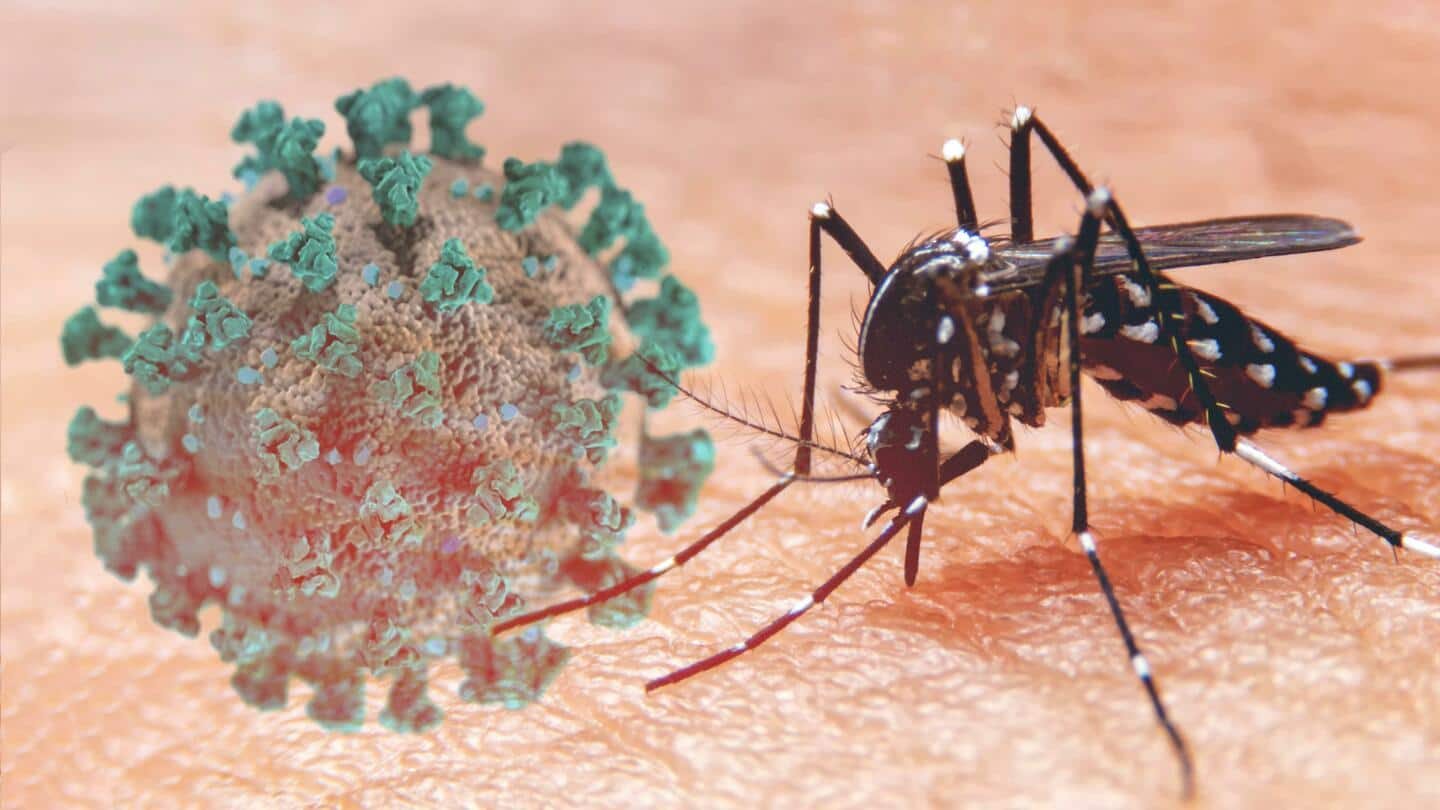
Karnataka reports first Zika virus case, 5-year-old girl tests positive
What's the story
Karnataka recorded its first case of Zika virus as a five-year-old girl from Raichur district tested positive, informed state Health Minister K Sudhakar on Monday. He said the girl has been advised to take precautionary measures. The government is monitoring the situation closely and the health department is well prepared to handle it, he said, adding that a set of guidelines will be issued.
Context
Why does this story matter?
In 2021, Rajasthan, Kerala, Maharashtra, and Uttar Pradesh witnessed the first cases of Zika virus, which is caused by the bite of the Aedes species of mosquitoes—also responsible for causing Chikungunya, Dengue fever, and Yellow Fever. Zika primarily spreads through mosquito bites, but it can also be transmitted through unprotected sex as the virus has been detected in semen, vaginal fluids, saliva, and urine.
Report
One out of three samples tested positive
Sudhakar said a lab report from Pune confirmed the Zika virus case. Three samples were sent for testing, of which two returned negative and one positive. He further said the case became known when the serum was put through Chikungunya and Dengue tests. Around 10% of samples are sent to Pune for testing, out of which, this is the first case.
Twitter Post
Precautions in place, monitoring the situation: Sudhakar
A 5-year-old girl in Karnataka has tested positive for the Zika virus & has been advised to take precautionary measures. This is first case in state & govt is monitoring the situation carefully. Our dept is well prepared to handle it: State Health Minister K Sudhakar
— ANI (@ANI) December 13, 2022
(File Pic) pic.twitter.com/ZH1n00nYxL
Quote
Surveillance in Raichur, neighboring districts
The health department officials have been instructed to carry out surveillance in Raichur and neighboring districts and send samples for testing if any suspected case is found. Allaying fears, Sudhakar said there is no need to worry as no other fresh case has been reported.
Background
WHO declared Zika virus isn't public health emergency in 2016
The Zika virus is a mosquito-borne flavivirus that was first discovered in Uganda in 1947. It causes the immune system to attack the individual's own nerve cells, and patients experience fever, rash, pain, etc. Though it has been reported in 86 countries, in November 2016, the World Health Organization (WHO) declared that it was no longer a Public Health Emergency of International Concern.